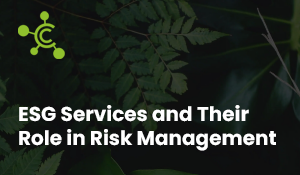Introduction
Corporate governance is the backbone of any successful business, ensuring that companies are managed in a way that promotes transparency, accountability, and long-term value creation. In recent years, ESG (Environmental, Social, and Governance) services have emerged as a critical tool for enhancing corporate governance practices. This post explores the role of ESG services in strengthening corporate governance and why they are essential for modern businesses.
Understanding Corporate Governance
Corporate governance refers to the system of rules, practices, and processes by which a company is directed and controlled. It involves balancing the interests of a company’s many stakeholders, including shareholders, management, customers, suppliers, financiers, government, and the community.
Key elements of corporate governance include:
- Board Structure: The composition and responsibilities of the board of directors, ensuring that it operates independently and effectively.
- Executive Compensation: The policies and practices related to how executives are compensated, aligned with long-term business goals.
- Risk Management: The processes in place to identify, assess, and mitigate risks that could impact the company’s operations and objectives.
- Ethics and Compliance: The company’s commitment to ethical behaviour, compliance with laws and regulations, and adherence to best practices.
Effective corporate governance ensures that a company is managed in a way that promotes accountability, transparency, and sustainable growth.
How ESG Services Improve Corporate Governance
ESG services play a crucial role in enhancing corporate governance by providing the tools and insights needed to manage governance-related risks and opportunities. Here’s how ESG services contribute to better governance:
- Enhanced Transparency: ESG services help companies improve transparency by providing clear, accurate, and comprehensive reporting on governance practices. This includes disclosures related to board structure, executive compensation, risk management, and ethical practices.
- Risk Management: ESG services assist companies in identifying and mitigating governance-related risks, such as regulatory compliance, ethical breaches, and reputational damage. By proactively addressing these risks, companies can avoid crises and protect their long-term value.
- Stakeholder Engagement: ESG services facilitate better communication and engagement with stakeholders, ensuring that their concerns and expectations are understood and addressed. This includes engaging with shareholders, employees, customers, and the community to build trust and support.
- Ethical Leadership: ESG services promote ethical leadership by helping companies establish and enforce codes of conduct, ethical guidelines, and governance policies. This ensures that all employees, from the boardroom to the front line, adhere to high ethical standards.
- Performance Monitoring: ESG services provide tools for monitoring and evaluating governance performance, allowing companies to track progress and make necessary adjustments. This includes regular assessments of board effectiveness, executive compensation alignment, and risk management practices.
Case Studies
Several companies have successfully used ESG services to enhance their corporate governance:
- Microsoft: Microsoft has integrated ESG considerations into its corporate governance framework, focusing on transparency, ethical leadership, and stakeholder engagement. The company’s strong governance practices have helped it maintain its reputation as a responsible and forward-thinking organization.
- Nestlé: Nestlé has adopted a comprehensive approach to corporate governance, incorporating ESG services to ensure transparency, accountability, and ethical behaviour. The company’s commitment to strong governance has been instrumental in building trust with stakeholders and driving long-term success.
- Siemens: Siemens has leveraged ESG services to enhance its corporate governance, particularly in the areas of risk management and ethical leadership. The company’s proactive approach to governance has helped it navigate complex regulatory environments and maintain its competitive edge.
Conclusion
ESG services are essential for strengthening corporate governance, providing the tools and insights needed to promote transparency, accountability, and ethical behaviour. As companies face increasing scrutiny from stakeholders and regulators, strong governance practices are more important than ever. By leveraging ESG services, businesses can enhance their governance frameworks, build trust with stakeholders, and drive sustainable growth.




